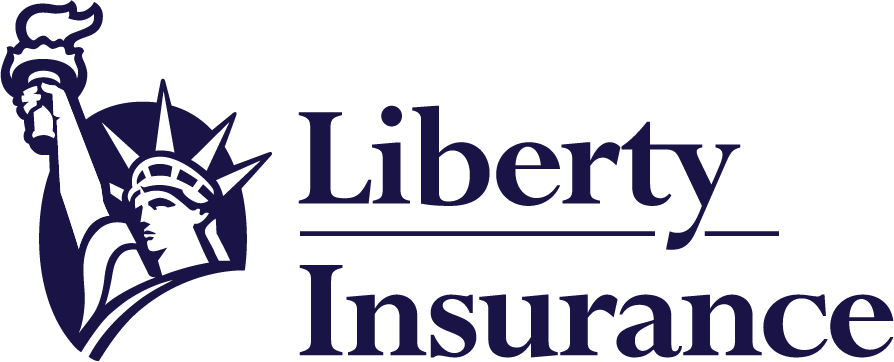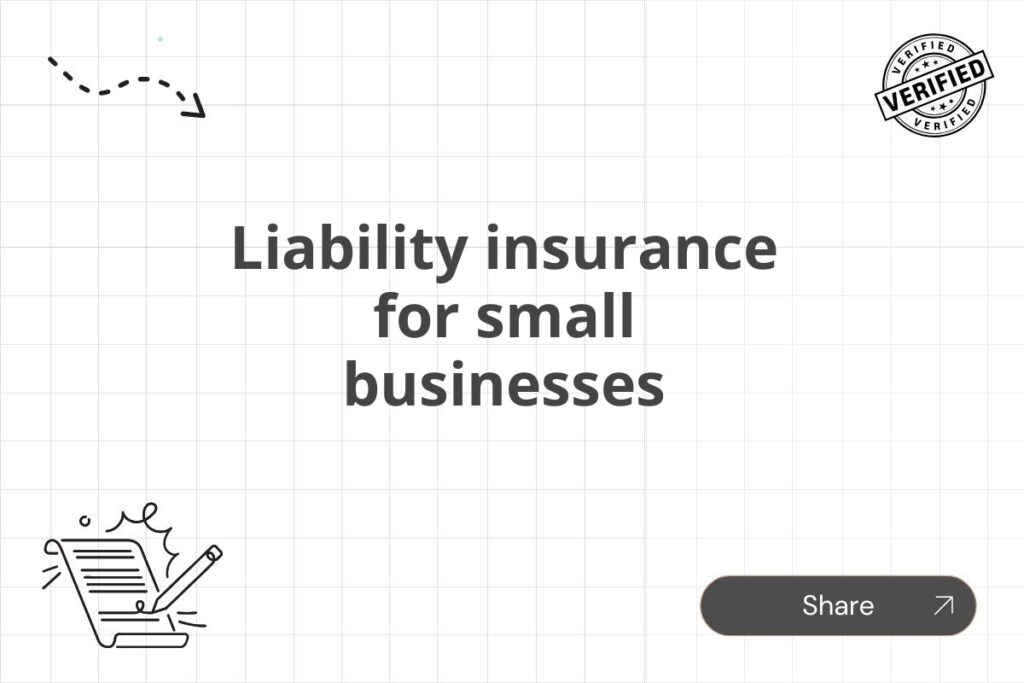Meta Description: Protect your small business from financial ruin with comprehensive liability insurance. Learn about different types, coverage options, and how to find the best policy for your needs. Get a quote today!
Running a small business is a rewarding but risky endeavor. One unexpected lawsuit could wipe out years of hard work and savings. That’s where liability insurance for small businesses becomes crucial. It’s a safety net that protects your business from the financial fallout of accidents, injuries, or property damage caused by you, your employees, or even your products.
This comprehensive guide will delve into the world of liability insurance for small businesses, exploring different types of coverage, factors to consider when choosing a policy, and how to secure the best protection for your unique needs. Understanding liability insurance isn’t just about compliance; it’s about safeguarding your business’s future.
Understanding Liability Insurance: The Basics
Liability insurance, in its simplest form, is a type of insurance policy that protects your business from financial losses stemming from claims of bodily injury or property damage caused by your business operations. It covers the costs associated with legal defense, settlements, and judgments. This coverage extends to various situations, including customer injuries on your premises, product defects, advertising mishaps, and even professional negligence (depending on the policy).
Types of Liability Coverage
Several types of liability insurance are available for small businesses, each designed to address specific risks:
- General Liability Insurance: This is the most common type of liability insurance for small businesses. It covers claims related to bodily injury, property damage, and advertising injury (like libel or slander) caused by your business operations. It often includes medical payments coverage, which helps cover medical expenses for injured individuals regardless of fault.
- Product Liability Insurance: If your business manufactures, distributes, or sells products, this insurance is crucial. It protects you from claims arising from injuries or damages caused by your products. This coverage is essential to prevent financial devastation from defective products.
- Professional Liability Insurance (Errors and Omissions Insurance): This is vital for businesses providing professional services, like consultants, lawyers, or accountants. It protects against claims of negligence or mistakes in the provision of services.
- Commercial Auto Insurance: If your business uses vehicles, commercial auto insurance is a must. It covers accidents involving your company vehicles, protecting you from liability claims resulting from those accidents.
- Umbrella Liability Insurance: This provides additional liability coverage above and beyond your other policies. It acts as an extra layer of protection in case of significant claims that exceed the limits of your primary liability insurance policies.
Factors to Consider When Choosing Liability Insurance
Selecting the right liability insurance policy requires careful consideration of several factors:
- Your Business Type: The type of business you operate significantly influences the type and amount of liability insurance you need. A restaurant, for instance, will require different coverage than a software development company.
- Your Business Location: Your location can affect your insurance premiums. High-risk areas may have higher premiums due to increased likelihood of claims.
- Your Business Size: Larger businesses typically require more extensive coverage than smaller businesses. The number of employees and the nature of your operations are key factors.
- Your Revenue: Your annual revenue can influence the amount of coverage you need to adequately protect your assets.
- Your Risk Assessment: Conduct a thorough risk assessment to identify potential liabilities within your business. This will help you determine the appropriate coverage levels.
- Insurance Premiums: Compare premiums from different insurers to find a policy that offers the best value for your money. However, remember that the cheapest option isn’t always the best; adequate coverage is paramount.
- Policy Limits: Understand the policy limits, which represent the maximum amount the insurer will pay for covered claims. Choose limits that adequately protect your assets.
- Deductibles: Deductibles are the amount you pay out-of-pocket before the insurance coverage kicks in. Higher deductibles typically result in lower premiums.
The Importance of Liability Insurance for Small Businesses
Liability insurance is not merely a formality; it’s a crucial investment in your business’s long-term sustainability. The potential costs associated with lawsuits, settlements, and legal fees can be devastating for small businesses, often leading to closure. Liability insurance provides a financial safety net, mitigating the risk of financial ruin from unexpected events. It also protects your personal assets, as many liability claims can extend beyond the business itself.
Beyond the financial protection, liability insurance offers peace of mind. Knowing you have adequate coverage allows you to focus on growing your business without the constant worry of potential lawsuits. It instills confidence in your operations and demonstrates responsibility to your customers and employees.
How to Find the Right Liability Insurance Provider
Finding the right liability insurance provider involves careful research and comparison shopping. Here are some key steps:
- Get Quotes from Multiple Insurers: Don’t settle for the first quote you receive. Compare premiums and coverage from several different insurers to find the best deal.
- Read Policy Documents Carefully: Before committing to a policy, carefully review the policy documents to understand the coverage details, exclusions, and limitations.
- Check Insurer Ratings: Research the financial stability and reputation of potential insurers. Look for reputable insurers with high ratings from independent rating agencies.
- Seek Recommendations: Ask other business owners for recommendations on insurance providers they have found reliable and trustworthy.
- Utilize Online Comparison Tools: Several online comparison tools allow you to quickly compare quotes from different insurers. These can save you significant time and effort.
- Consult with an Insurance Broker: An independent insurance broker can help you navigate the insurance market, compare policies, and find the best coverage for your specific needs.
Conclusion
Liability insurance is an indispensable element of risk management for small businesses. It provides a critical financial safety net against potential lawsuits and claims, safeguarding your business’s financial stability and long-term success. By understanding the different types of liability insurance, considering the relevant factors, and diligently comparing options, you can secure the appropriate coverage to protect your hard work and investment. Don’t wait for a crisis; invest in liability insurance today and secure your business’s future.






















